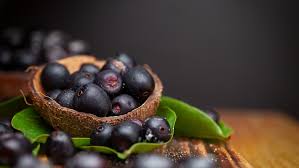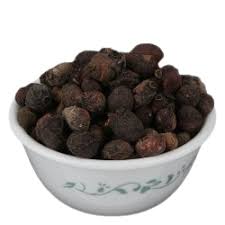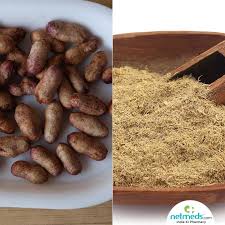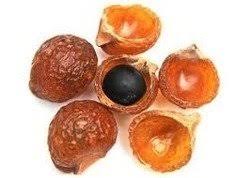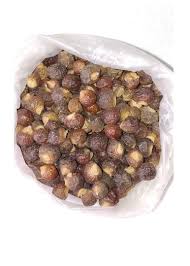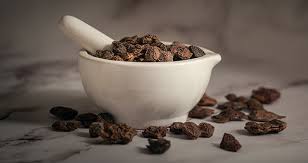
Shikakai vs. Commercial Shampoo: Which is Better?
In a market flooded with glossy bottles and exotic ingredients, choosing the right shampoo for your hair can feel overwhelming. Every brand promises shiny, strong, and dandruff-free hair—but most of these results come at a cost. Harsh chemicals, artificial fragrances, and sulfates in commercial shampoos often lead to scalp irritation, hair fall, and dryness over time.
Amid this modern chaos, Shikakai — a humble, age-old Ayurvedic herb — is regaining popularity. Known for its gentle cleansing properties and deep-rooted healing power, Shikakai is celebrated in Indian households as the ultimate natural hair cleanser.
At Dirghaanshi, where we honor the legacy of Jadi Buti remedies, we strongly believe in the healing power of nature. In this blog, we explore a detailed comparison of Shikakai vs. commercial shampoos and help you decide which is truly better for long-term scalp health and hair beauty.
🌿 Long Description
🌱 What is Shikakai?
Shikakai (Acacia concinna) is a thorny plant native to the Indian subcontinent. Its pods, bark, and leaves are dried and ground into a powder that has been used for centuries in Ayurvedic hair care. The term “Shikakai” literally means “fruit for hair” in Sanskrit — and rightly so. It’s packed with natural saponins, vitamins, and antioxidants that cleanse, condition, and nourish your hair, all at once.
🧴 What are Commercial Shampoos?
Commercial shampoos are mass-produced liquid cleansers typically made from synthetic detergents (like SLS), thickeners, artificial fragrances, preservatives, and sometimes silicones. While they create a luxurious lather and offer instant results, they often come with hidden long-term side effects.
⚖️ Shikakai vs. Commercial Shampoo: Detailed Comparison
Let’s break this down point by point:
✅ 1. Ingredients
Shikakai: 100% natural. Derived from dried plant material. Rich in Vitamin C, saponins, antioxidants, and minerals. No synthetic additives.
Commercial Shampoo: Contains SLS/SLES (sulfates), parabens, alcohol, artificial colors and fragrances, and preservatives.
Winner: Shikakai — clean, natural, and safe.
✅ 2. Cleansing Power
Shikakai: Gently cleans the scalp without stripping natural oils. Contains natural saponins that produce a mild lather and remove dirt.
Commercial Shampoo: Strong cleansing agents. Quickly removes oil and buildup but can be harsh on the scalp and strip protective oils.
Winner: Shikakai — gentle and balanced.
✅ 3. Hair Health
Shikakai: Strengthens roots, promotes hair growth, and prevents hair fall, dandruff, and split ends with regular use.
Commercial Shampoo: Temporary smoothness and shine, but long-term use may weaken hair and cause dryness, breakage, or irritation.
Winner: Shikakai — long-term holistic health.
✅ 4. Scalp Friendliness
Shikakai: Balances scalp pH, soothes inflammation, and reduces itchiness and fungal infections.
Commercial Shampoo: Harsh chemicals often disturb the pH balance and cause sensitivity, dryness, or overproduction of oil.
Winner: Shikakai — ideal for sensitive scalps.
✅ 5. Eco-Friendliness
Shikakai: 100% biodegradable. No chemical runoff. Safe for water bodies and the environment.
Commercial Shampoo: Contains synthetic ingredients that can pollute water and harm aquatic life.
Winner: Shikakai — sustainable and planet-friendly.
✅ 6. Cost and Accessibility
Shikakai: Inexpensive, easily available as powder or pods. Can be homemade into shampoos, masks, or rinses.
Commercial Shampoo: Often costly, especially premium brands. Requires frequent re-purchase.
Winner: Shikakai — budget-friendly.
✅ 7. Suitability for All Hair Types
Shikakai: Works well for oily, dry, curly, and straight hair. Can be customized with herbs like Amla, Reetha, and Bhringraj.
Commercial Shampoo: Has specialized variants but often needs trial and error; may cause allergy or imbalance.
Winner: Shikakai — versatile and customizable.
✅ 8. Preservation of Hair Color
Shikakai: Preserves natural melanin, helping to delay premature greying.
Commercial Shampoo: Chemicals may cause fading of natural and artificial color over time.
Winner: Shikakai — protects your hair’s natural tone.
✅ 9. Side Effects
Shikakai: No side effects when used correctly. Completely natural and safe for long-term use.
Commercial Shampoo: Common side effects include hair thinning, scalp irritation, allergic reactions, and dry ends.
Winner: Shikakai — risk-free.
✅ 10. Overall Effectiveness
Shikakai: Holistic, long-term benefits with consistent use. Acts as cleanser, conditioner, and scalp tonic in one.
Commercial Shampoo: Instant results, but often superficial. Long-term damage can outweigh short-term shine.
Winner: Shikakai — slow but deeply effective.
🧴 How to Use Shikakai as a Shampoo
🔸 Simple Shikakai Shampoo Recipe
Ingredients:
2 tbsp Shikakai powder
2 tbsp Reetha powder
1 tbsp Amla powder
3 cups water
Method:
Boil all ingredients for 15–20 minutes.
Let it cool and strain.
Use the liquid as shampoo.
Use: 2–3 times a week for best results.
🔸 Shikakai + Aloe Vera Hair Cleanser
Ingredients:
2 tbsp Shikakai powder
2 tbsp fresh aloe vera gel
Water as needed
Method:
Mix into a thin paste and use as a shampoo.
Benefit: Soothes scalp and hydrates dry hair.
💬 Common Myths About Shikakai Debunked
Myth: Shikakai doesn’t clean hair properly.
Fact: It cleanses naturally and deeply without harsh surfactants.
Myth: It’s only for traditional users.
Fact: Shikakai is suitable for modern routines and works for all hair types.
Myth: It’s hard to use.
Fact: Shikakai shampoos can be pre-made and stored for a week or more.
📌 Dirghaanshi’s Final Verdict
At Dirghaanshi, we stand by nature’s simplicity and the time-tested power of Jadi Buti. When you choose Shikakai, you’re not just picking a shampoo — you’re embracing a complete Ayurvedic hair wellness system.
While commercial shampoos offer temporary gloss, Shikakai provides lasting strength, shine, and true nourishment without harm to your scalp, hair, or the planet. The verdict is clear: Shikakai is better — naturally, holistically, and sustainably.


